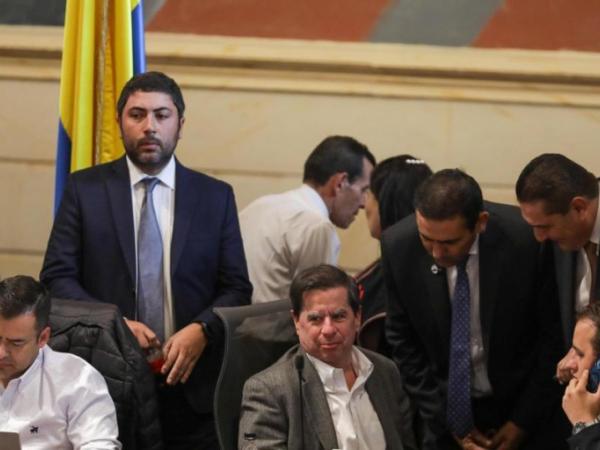The plenary session of the House of Representatives denied the archival presentation of the reform project to the General Participation System (SGP)which seeks to increase the resources that the Nation transfers to the departments.
It is worth mentioning that said text establishes that this figure will gradually go from 23.8% to 39.5% in a period of 12 years.
(You can read: New setback in financing law: filing of presentation in Congress is postponed).
“We have a historical debt with departments and municipalities. In the Constitution of ’91 we were generous in terms of decentralization. We started from the principle that this centralist model was a true failure. It was always said that we should have greater autonomy in the regions in order to correct an inequality that exists in the territories.“said the liberal representative Carlos Ardilarapporteur of the project that is being discussed in its eighth and final debate, so if it is approved, only conciliation will be missing.
This initiative also has the support of the governors. Several of them appeared in the debate in the plenary session of the House this Monday and asked this legislative body to approve the project.
Reform to the General Participation System.
Courtesy – API
“This will mark a before and after in our Nation. For decades, municipalities and departments have been relegated to the background because they do not have the resources. The centralization of resources and power has generated deep inequalities in the regions (…) It is necessary to emphasize that this project is not going to bankrupt Colombia. We must give step by step to the territorial entities and for this it is necessary to reduce the size of the central government“he pointed out Eduardo Verano de la Rosa, governor of the Atlantic.
(Besides: National Police draws up its 2025 Roadmap: this is how its operation will work next year).
“Here those who say that what will be done with the money that is passed on to the regions should first ask themselves where the resources come from to pay for the PAE, which was a responsibility of the Colombian Family Welfare Institute (…). I wish the percentage had been or was more, but this project will undoubtedly help us fulfill a promise“he stated, for his part, Carlos Amaya, governor of Boyacá and president of the National Federation of Departments.
It is worth mentioning that the archival presentation that occurred in this Monday’s session was the representative of the Green Alliance, Katherine Mirandawho assured that the new system would seriously affect fiscal stability and the country’s coffers.

Katherine Miranda
Chamber Press
“The budget for next year will be 523 billion pesos and do you know how inflexible it will be? By 91 percent. And they tell us the story that they are going to generate a competency law. Do you know which powers will end up being transferred to the territories? That they end up paying the foreign debt, pensions, defense and security, that is what they are going to transfer, because otherwise nine tax reforms would be needed“said the congresswoman.
(Further: Government establishes dialogue tables to improve competitiveness of the field).
He former minister Rudolf Hommes has also been one of the voices that has questioned this initiative: “It is not advisable to give them more resources than they need and can handle, we could be encouraging corruption and we could be encouraging the misuse of resources with excesses of generosity.“he stated.
PORTFOLIO
*With information from EL TIEMPO – DIGITAL
















